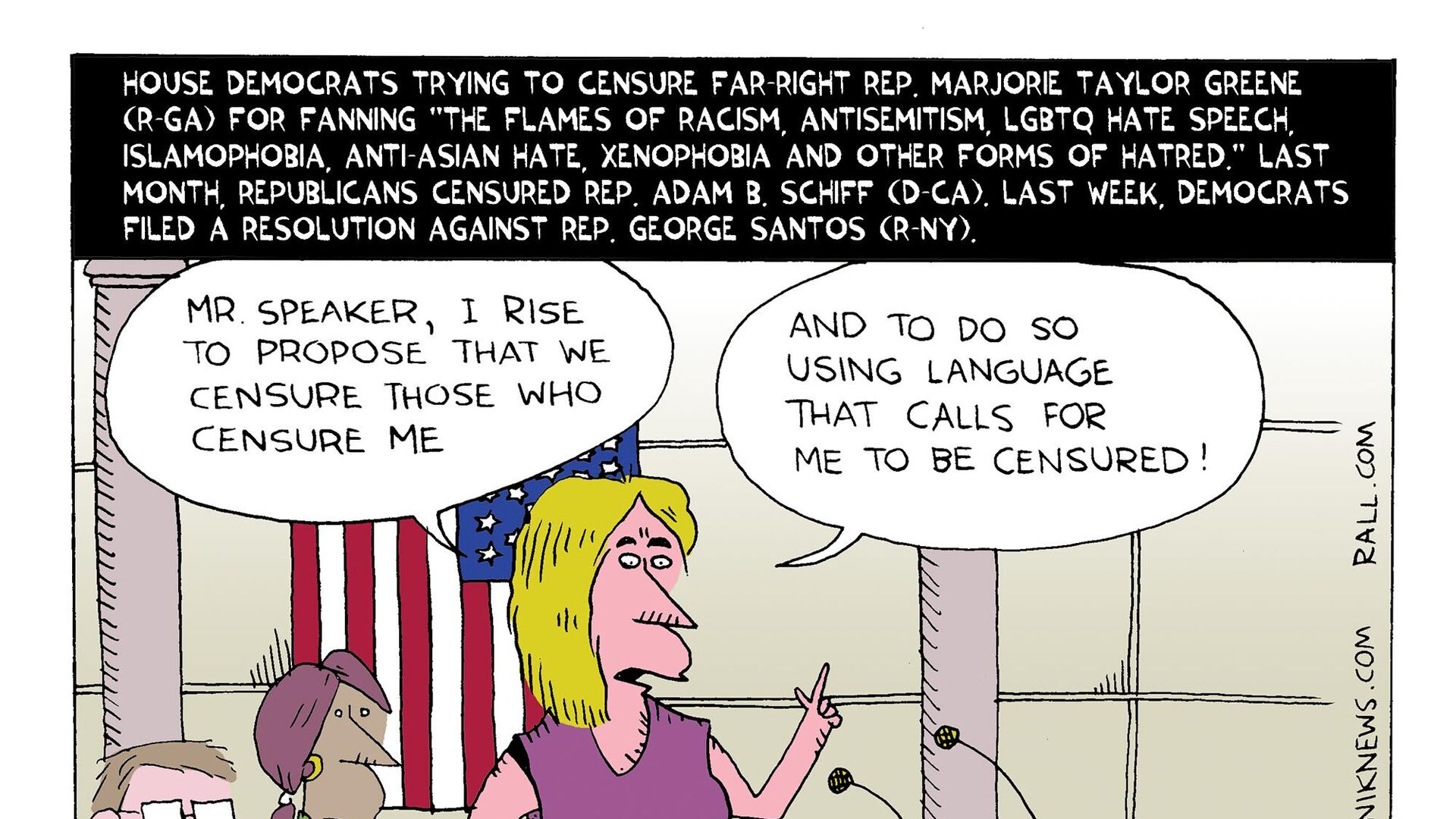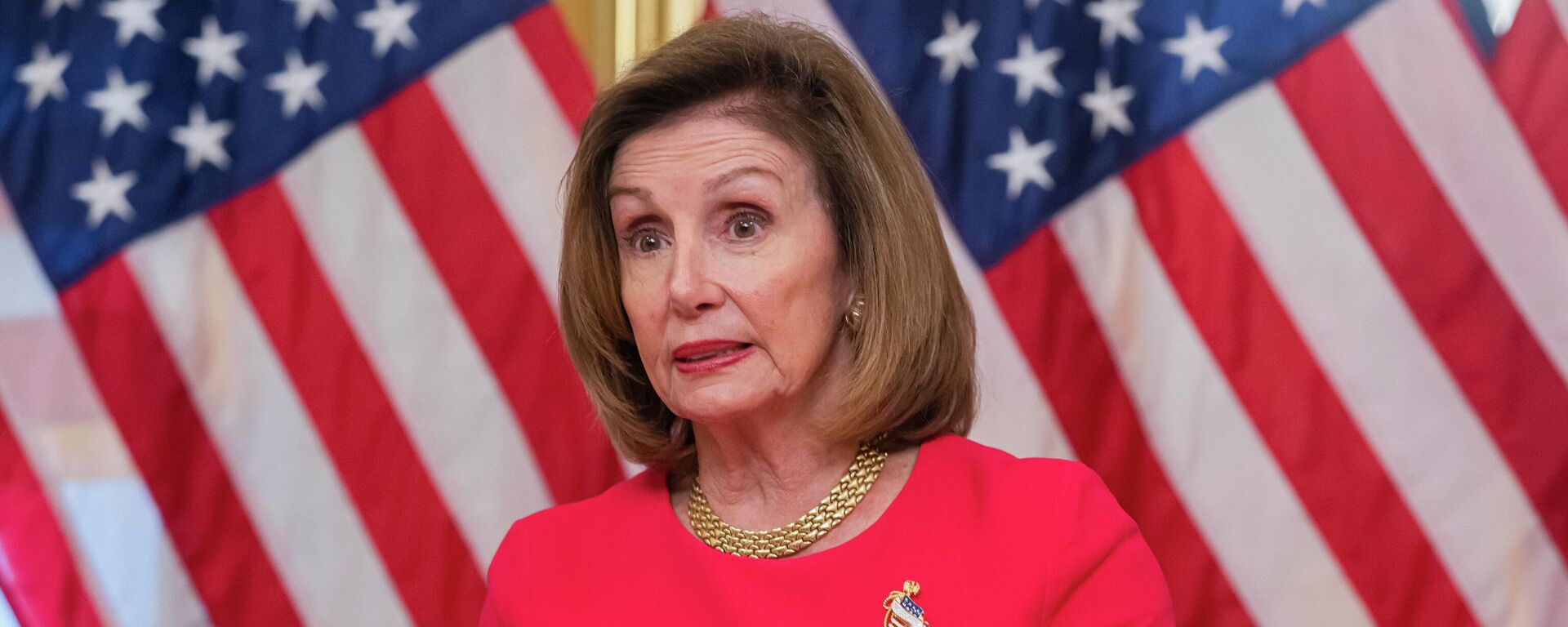Censure Here, There and Everywhere
Marjorie Taylor Greene Censure
House Democrats are nearing a censure resolution for US. Rep. Marjorie Taylor Greene (R-GA) for a myriad of comments she made throughout her congressional campaign, remarks that Democrats say fanned “the flames of racism, antisemitism, LGBTQ hate speech, Islamophobia, anti-Asian hate, xenophobia and other forms of hatred.”Among complaints listed in the documents are comments Greene made comparing mask mandates to the Holocaust, calling an LGBTQ California state senator a “communist groomer,” remarks that she would “kick out every single Chinese in this country that is loyal to the CCP [Chinese Communist Party],” that Muslim members of Congress were not “really official” because they did not take their oath of office on a Bible, and that she called people who participated in the January 6 riots on the US Capitol “political prisoners of war.”Some of the complaints refer to Facebook posts Greene made or shared before being elected to Congress. The lawmaker was previously removed from her committee assignments but was not censured.Her potential censure comes a week after Democrats filed a resolution against US Rep. George Santos (R-NY) for the various falsehoods he stated about his career, family and life during his campaign last year. Several Republicans reportedly said they will support that resolution if Democrats force a vote on it.The move also comes after Republicans censured Rep. Adam Schiff (D-CA) last month for his role in promoting the Russiagate conspiracy. AmericasPelosi: GOP Has Turned House Into ‘Puppet Show’ With Schiff Censure Vote22 June, 03:58 GMT
AmericasPelosi: GOP Has Turned House Into ‘Puppet Show’ With Schiff Censure Vote22 June, 03:58 GMT
Censures used to be rare in the House. No Representatives were censured in the House from the end of 1983 until 2010. There have since been two, Paul Gosar (R-AZ) in 2021 and Schiff’s last month.
Should Santos and Greene both be censured, 2023 will tie 1870 as the year with the most censured representatives. In 1870, three Republican representatives were censured for selling military academy appointments, with all three votes being unanimous.



